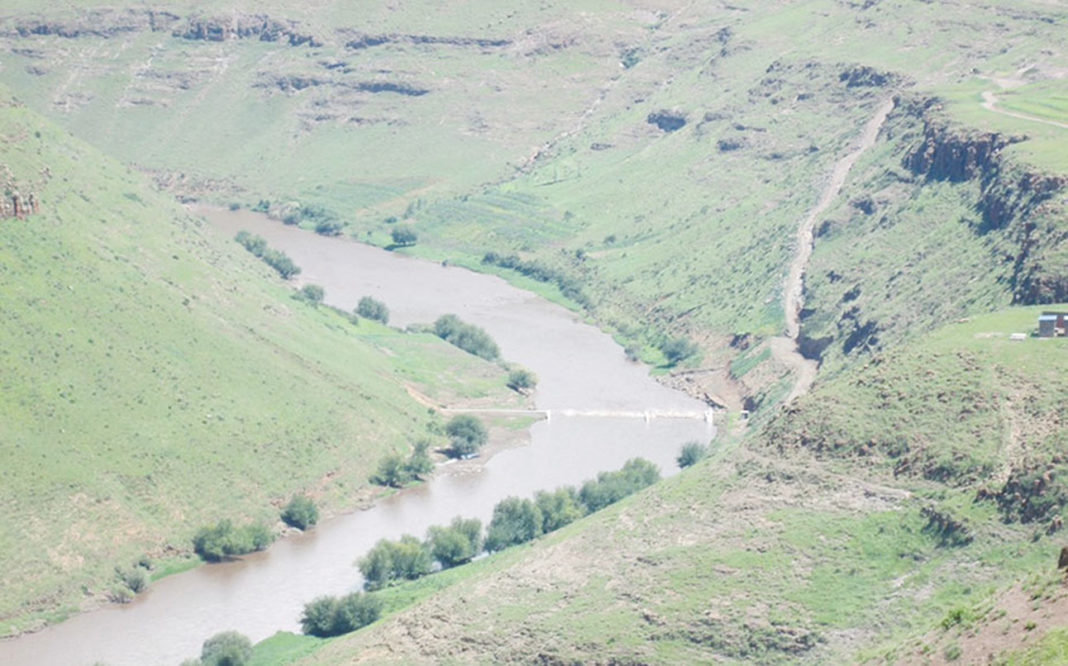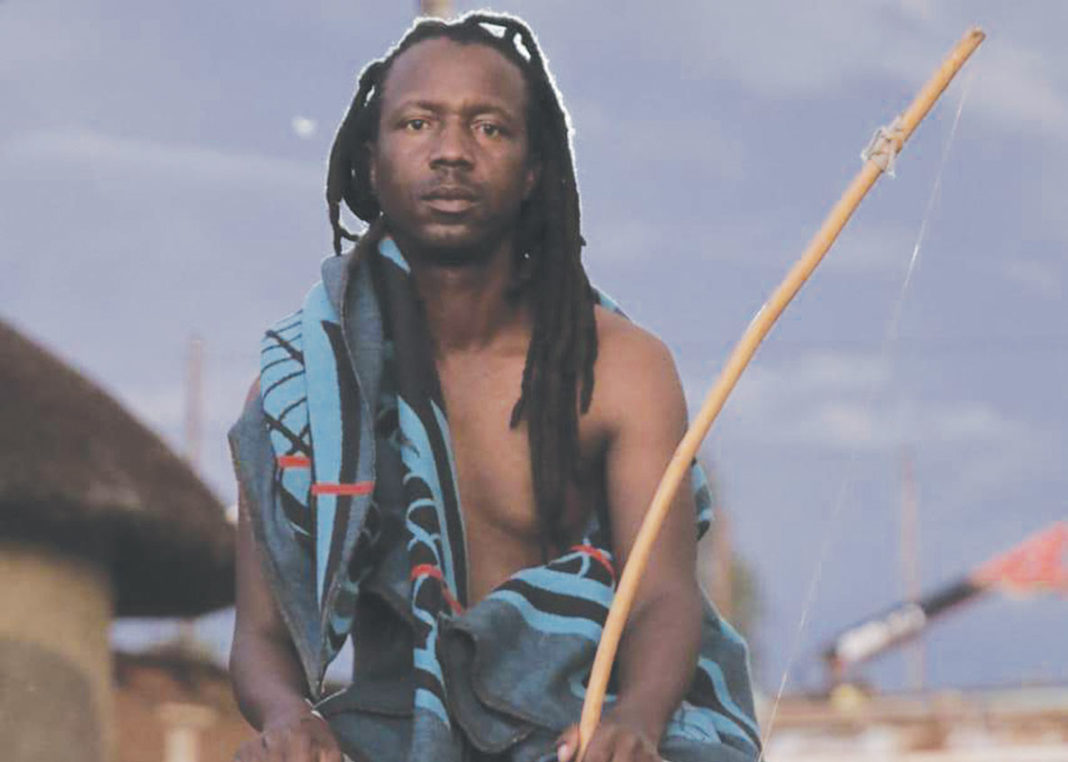By Majirata Latela
As climate change tights its grip and threatens Lesotho’s green pastures in the countryside, the construction of big dams looks poised to deepen the crisis by further diminishing the already shrinking graze lands which are crucial for the very livelihoods of the rural folks.
It is a well-known fact that people in the mountains survive through agriculture; ploughing their fields and rearing animals is their main source of putting food on the table. With the building of more dams in Lesotho, it raises questions about the commitment of large projects to the welfare of the rural communities.
Even though the country needs infrastructure and more dams, there is mounting pressure for the revision of the Lesotho Highlands Water Project (LHWP) Treaty in the face of unrelenting climate change that has resulted in levels of water sources and rivers in Lesotho diminishing drastically in recent years, raising concerns that the country could be left waterless while supplying water to South Africa.
The LHWP is a multi-phased project to provide water to the Gauteng region of South Africa and to generate hydro-electricity for Lesotho. It was established by the 1986 Treaty signed by the governments of Lesotho and South Africa. It entails harnessing the waters of the Senqu River in the Lesotho highlands through the construction of a series of dams. Phase I of the project was completed in 2003 and inaugurated in 2004, and Phase II is currently underway.
The economy of the Lesotho is dominated by subsistence agriculture and small scale manufacturing of textile, garments and apparel. Productivity has been deteriorating since the early 1990s because of unpredicted weather conditions including inconsistence rains and persistent and recurring droughts. The effects of soil erosion severe land degradation and climate change have reduced the productive capacity of Lesotho’s croplands and rangelands.
Not only are water sources diminishing but grazing land is also at risk due to drought which is caused by climate change. Now, with the building of dams taking up much of the land that Basotho rely on to feed their animals, grow crops and get medicines, it is not known for how long Basotho will suffer while feeding South Africa with its own resources.
theReporter went out to find out the extent of the impact of dams on rural livelihoods. Lebohang Lengoasa, a community representative of Masakong village in Mokhotlong says their graze land is already affected by the construction of Polihali Dam and as a result, their animals are dying like flies due to hunger.
“Our pastures are very much affected and as you know in the rural areas our main source of living comes from the land we use for livestock farming.
“Due to the drought that we experienced last year, our graze land was badly affected and we had only a little portion to use for feeding our animals. But the Polihali Dam is taking up a huge chunk of the land, adding to our problems.
“The camp site for the construction workers has occupied a large portion of the land we used for animal grazing, and they have gone as far as polluting our environment with plastics which our animals ingest and die. No one seems to understand the frustration we are going through as a result of this dam,” Lengoasa said.
He added that upon realising that the Lesotho Highlands Water Project (LHWP) is not responding to their grievances they approached parliament, which did not do much to help. Lengoasa said last week they were ordered by their chief to take all their animals to the cattle posts or face the wrath of soldiers.
“Not only are our animal suffering but the construction has negatively impacted on our way of living; we no longer get enough firewood because,” Lengoesa complained.
On the other hand, Transformation Resource Centre’s Polihali Liaison Officer, Fako Faku confirmed that according to their research, the construction of Polihali Dam is indeed going to impact on the lives of communities that live in the vicinity of the dam.
He said there are long term challenges and short term challenges that those communities are going to be faced with. Long term challenges include the land being submerged in the water,
“That land which was part of their graze land such as the one at Senqu River – they will no longer be able to use it, they will no longer get firewood from or even get medication for themselves or their animals.
“Those communities’ way of living is going to be impacted a lot; we have found that Khubelu River had many resources which they used in their everyday lives; thatching grass, sand which they took from Senqu and the ever green grass along the river and the wetlands are some of the long term challenges that cannot be compensated or recovered.
“The construction of roads too, is going to take a portion of their land,” Faku said.
He also acknowledges that the graze land was already not enough for the animals and for it to also be taken away by the dams without clear ways of compensation is a huge challenge for those communities. Loss of flock to hunger will greatly impact on farmers.
As for short term challenges, rehabilitation of the land on which the campsites are erected will not be an easy job. Sometimes it is not done at all.
He warned that the depletion of graze lands could also result in land degradation or even desertification, which are a serious threat to human lives.
“As TRC we advise that companies should comply with the Environment Act of 2008 where it talks of compensation and rehabilitation of the affected areas. Rehabilitation should also meet the standard of the project.
“It is the corporate social responsibility of such projects to include communities by giving them fodder crops to help them with rehabilitating the graze lands; on top of that the people should be given education on how to conserve the available land,” Faku maintained.
National University of Lesotho’ economist, Ratjomose Machema, on the other hand pointed out Lesotho’s land tenure system is in antiquated, such that it is sometimes not easy to tell who actually owns a given piece of land.
“Polihali is built on wetlands that many communities used as graze land and any form of compensation will never be enough to make up for the loss.
“When the then minister of finance, Moeketsi Majoro read the budget speech, he indicated that there will be improvement of range management, and we should applaud that; however, the land tenure system revision urgently needs to be revised,” Machema pointed out.
He said something needs to be done about the rangeland system because the agricultural sector is very critical and Lesotho’s economy is boosted by it while on the other hand many people depend on it.
Machema advised that the compensation system should be done in a spot on manner which will satisfy all parties. Consultations with local communities is key when there are big projects.
“Also, an environmental impact assessment should also be done to avoid building dams at the expense of the survival of communities.”









